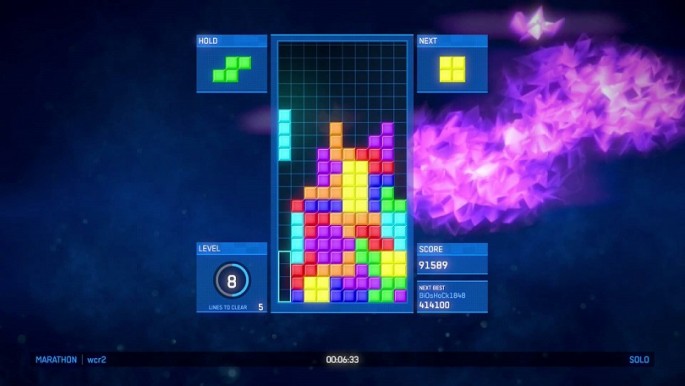Tetris is not only an addicting video game on Facebook, but a new study indicates playing it for three minutes can help to reduce all types of cravings. The research shows that the popular puzzle game can provide long-term help to end longings for soft drinks, junk food, cigarettes, alcohol, drugs, and sex.
The study was conducted by Plymouth University and Queensland University of Technology in Australia, over a 7-day period. Findings were published in the journal Addictive Behaviors. The research was unique in that it was performed in daily environments instead of in a laboratory.
Experiments included 31 people between the ages of 18 to 27. Volunteers were required to report their cravings via a text message, and then 15 subjects played the Tetris game for three minutes, according to Nature World Report.
Researchers learned that the short time was enough to distract the subjects from their cravings. After playing the block-matching game, cravings for things and activities dropped from 70 percent to 56 percent.
In addition, the effect lasted. Cravings were reduced throughout the study even though volunteers played Tetris an average of 40 times to treat their hankerings.
Professor Jackie Andrade said that the "Tetris effect" happens because the game is visually interesting. Its imagery replaces the cravings linked to a certain substance or action.
Food and non-alcoholic drinks made up a majority of all cravings. The figure was about two-thirds, according to The Market Business.
Meanwhile, 21 percent were substances classified as "drugs" including coffee, beer, wine, and cigarettes. Finally, 16 percent of the addictions were activities. They included socializing with friends, playing video games (such as Tetris), and having sexual intercourse.
Tetris could simply cause people to forget about their cravings. Another theory is that the need to release endorphins takes place while playing the fun-filled game.
In other words, sometimes people enjoy the caffeine in coffee, alcohol in wine, or sugar in cookies. However, their true "need" is the joy they bring.
The researchers' theory is that happiness from things such as fizzy drinks or social networking could be substituted with similar items that also create an emotional "high." In the study it was Tetris.






















